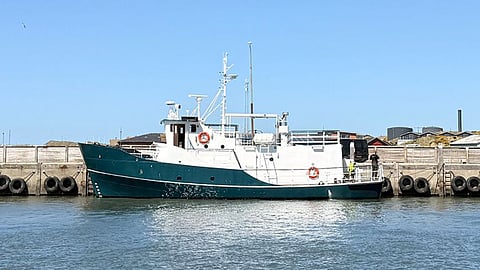VESSEL CONVERSION | Fulton Energi I – Danish maritime non-profit to operate refurbished training ship
Hvide Sande Shipyard (HSS) in Denmark has completed work to convert a cargo vessel into a training ship that will help introduce young people to seamanship instruction.
The Fulton Foundation, a Danish maritime-oriented non-profit, acquired the cargo vessel Duen with the intention of using it as a platform for maritime education under the name Fulton Energi I. HSS said improvements to the accommodation areas and technical systems were required to enable the vessel to meet the functional and regulatory demands of a modern educational environment.
Increased dimensions for additional facilities
Constructed of steel, Fulton Energi I has a length of 19.28 metres (63.25 feet), a beam of 5.7 metres (19 feet), a draught of 2.9 metres (9.5 feet), and accommodation for up to 15 people.
The work to convert the vessel for training duties I included upgrades to the interior and the exterior. The entire hull was sandblasted and treated with a new protective coating to ensure its durability and longevity. The wheelhouse was also renovated, while the deckhouse was extended to include two additional cabins and a new toilet.
Full suite of power and equipment upgrades
The engine room was upgraded with the installation of a John Deere 129kW (173hp) main engine and shaft arrangement driving a 1,900mm fixed-pitch propeller. The propulsion setup, which also includes a Cummins Onan generator and a Vitron 20kWh lithium iron phosphate battery bank, delivers a speed of eight knots.
All auxiliary systems were modernised to integrate with the new propulsion setup. Electrical installations across the vessel were thoroughly inspected and updated to meet current operational standards.
HSS also installed solar panels to improve the vessel’s energy efficiency.
Fulton Energi I will sail out of the Port of Esbjerg on training voyages from early morning to early afternoon every weekday during the summer. While on board, instructors will teach students how to perform various tasks related to the boat’s operation.
The boat has also been laid out to allow students to have their meals on board, eating along with the crew as a way of immersing themselves in everyday life at sea.


